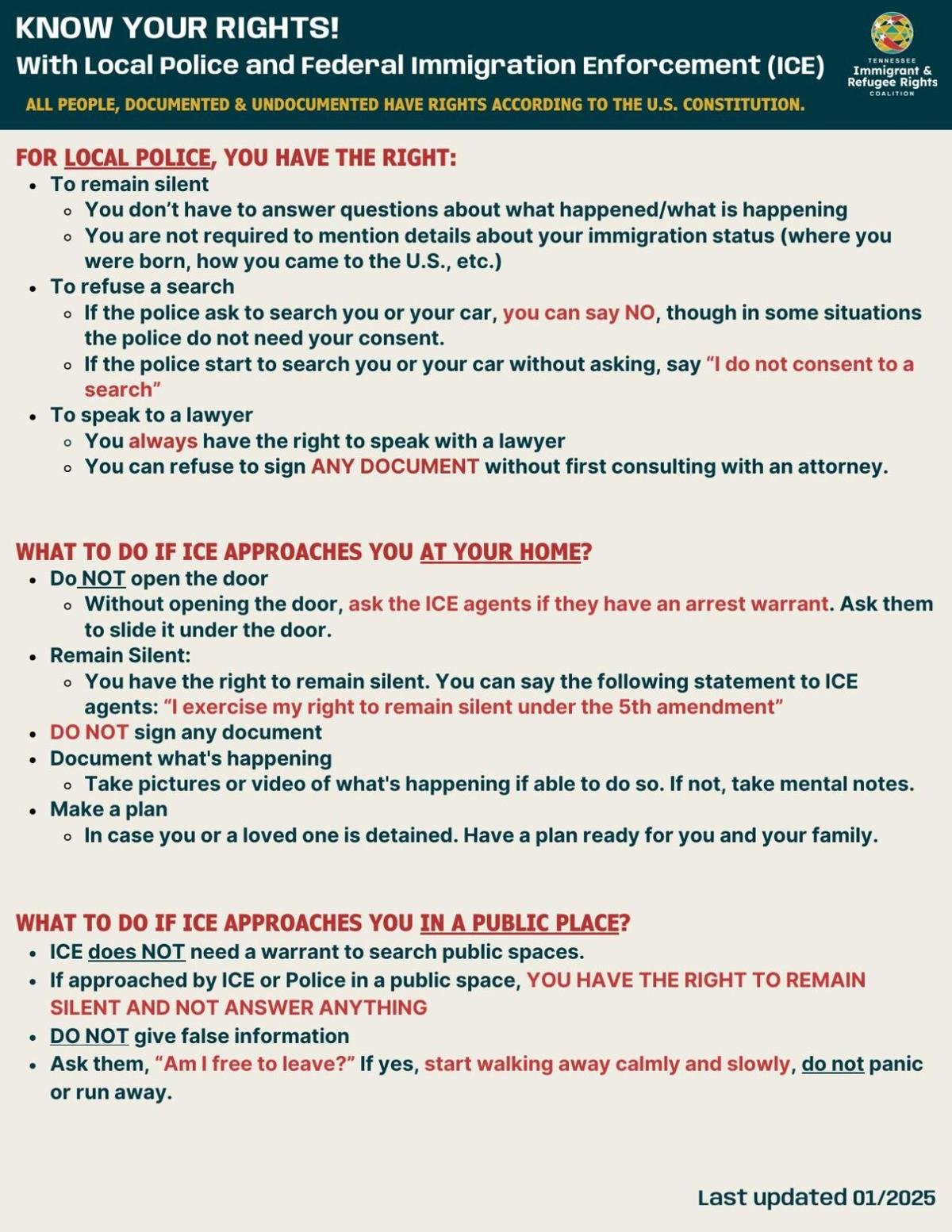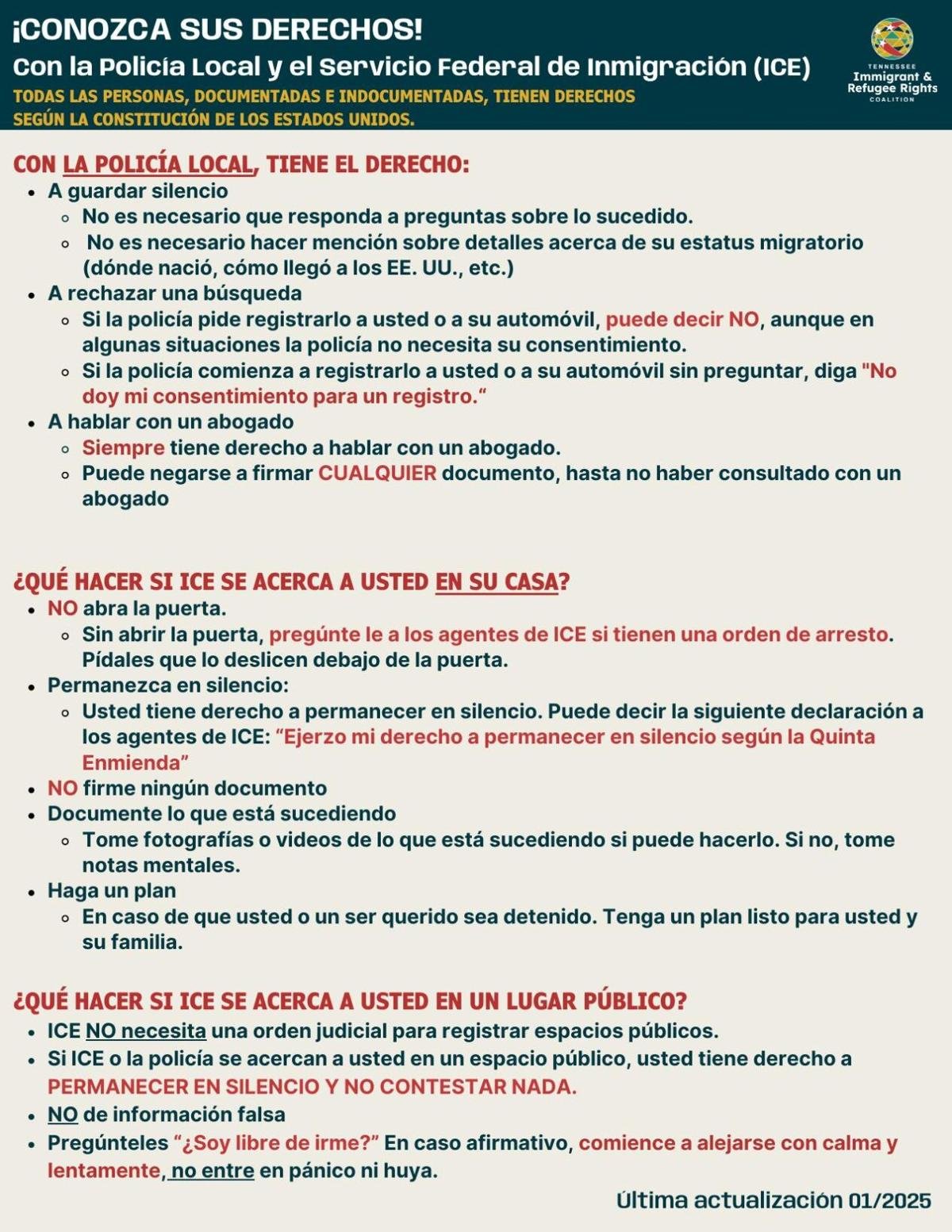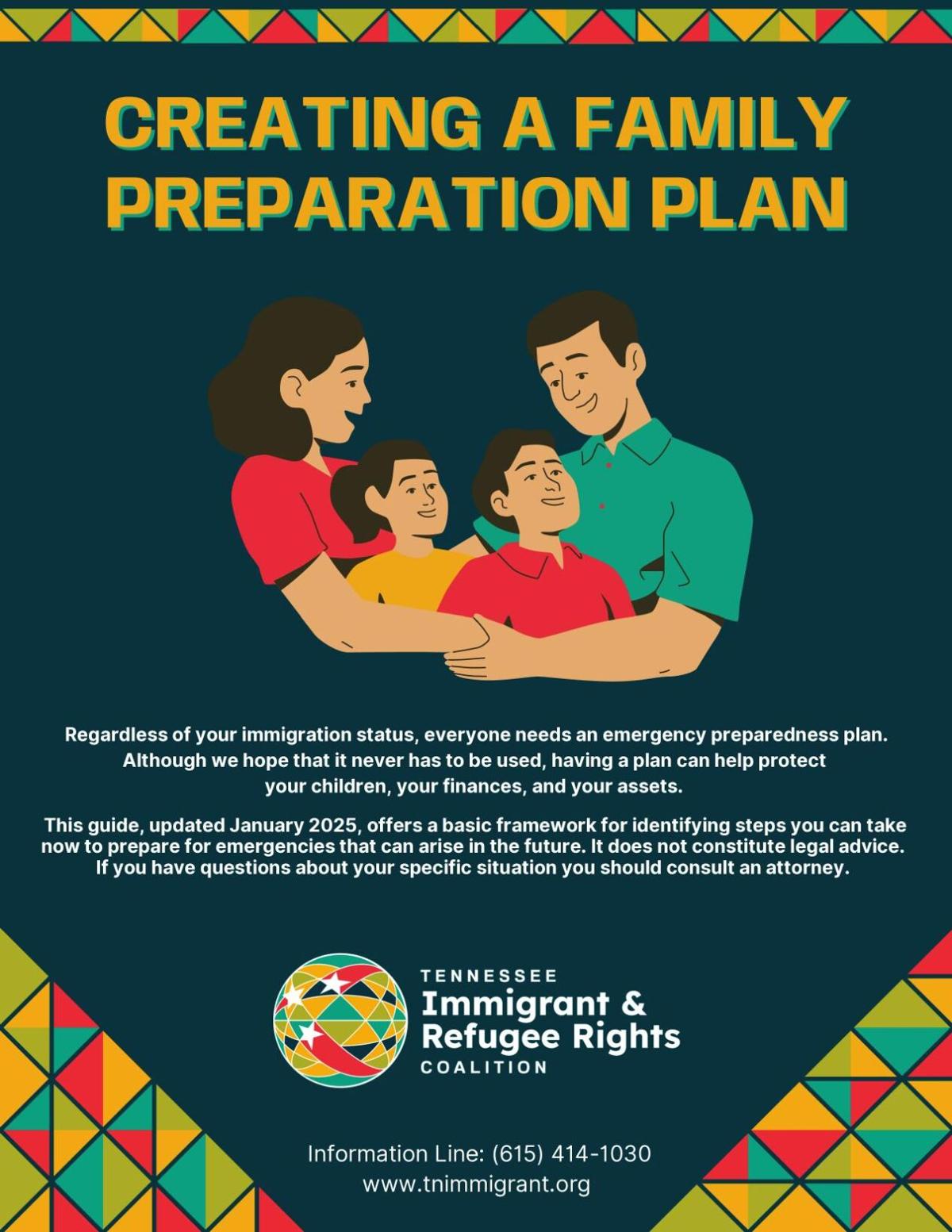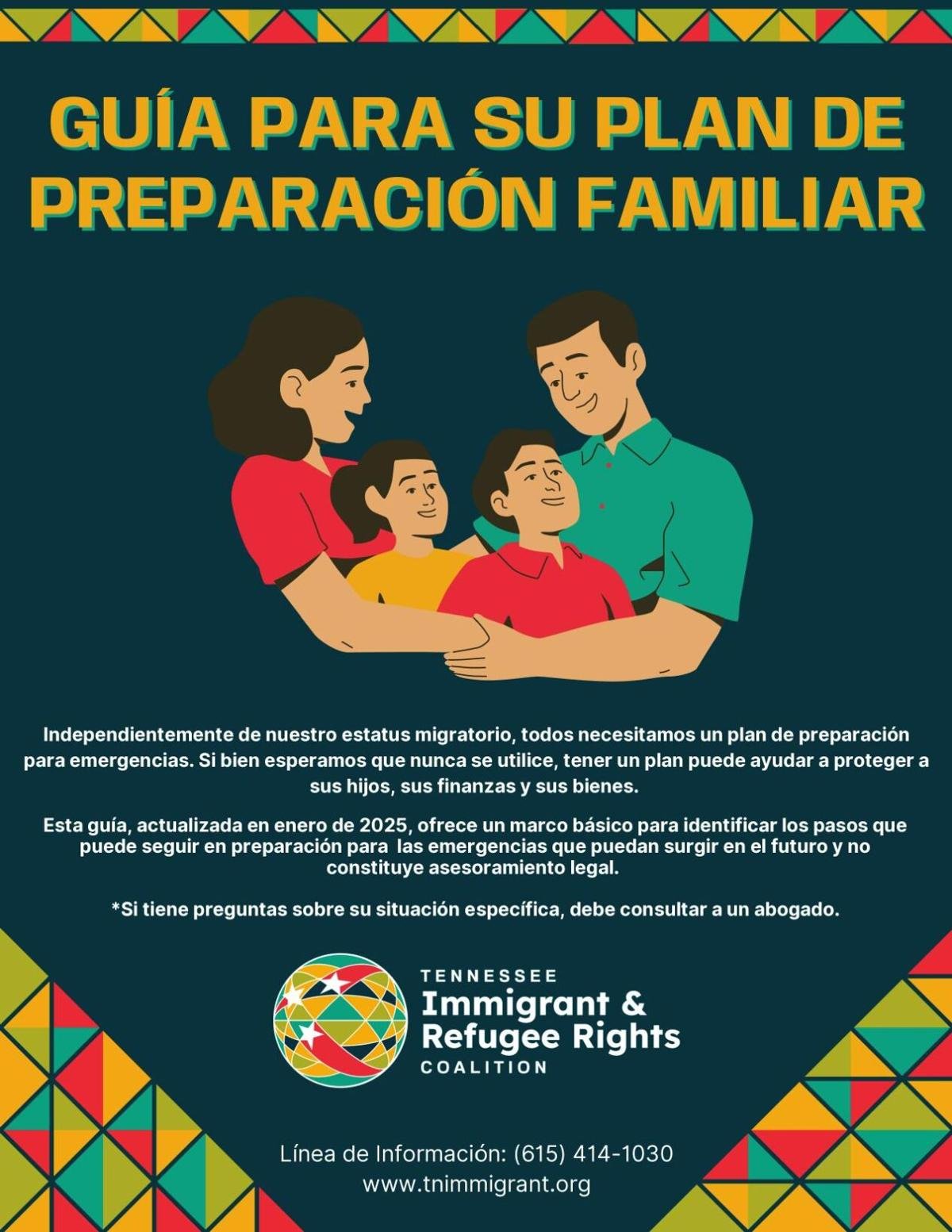
Allen Shao King
Tennessee is doubling down on the federal immigration enforcement actions from President Donald Trump, passing its own law to create a state enforcement agency during January’s special legislative session.
The Nashville Scene recently sat down with the Tennessee Immigrant and Refugee Rights Coalition’s legal services director Allen Shao King to talk about what people need to know during this tumultuous time for immigration policy. He explains that, while there has historically been a separation between the duties of federal and state governments on immigration, to him, this seems like politicians trying to grab national attention rather than acting in the interests of the people of the state. There’s a lot of fear-mongering in politics when it comes to immigration, and that makes its way down into immigrant communities — which also creates confusion.
Shao King says that even when ICE officials claim to have a warrant for a search, they may have their own ICE-produced document and not the judicial warrant that is required. He explains that knowing the difference and knowing what those documents mean is important for both individuals and representatives of community gathering places — schools, churches and hospitals, for instance. ICE, says Shao King, might not actually have the proper authority to enter.
“It acts more as a fear-based battering ram than actually any sort of legal documentation,” Shao King tells the Scene in relation to ICE-produced documentation.
He explains that TIIRC has created several one-page explainers as well as detailed guides in multiple languages so people can learn more about their rights in addition to conducting presentations and partnering with community leaders to amplify the message. This interview has been edited for clarity and brevity. Find some of TIRRC's immigrant resources in the PDFs at the bottom of this story.
‘Know Your Rights’
“Immigration law, even without all of these changes, is a very strange and complex area of law. … What we’re really focusing on right now, what a lot of groups nationwide are focusing on, is these ‘know your rights’ trainings. Essentially, these trainings are for members of the community, but they’re not just for undocumented people. The rights that we are talking about are not specific to immigrants. They are rights that are available to everyone inside of the United States because we have the Constitution protecting us. The information that we’re trying to get out there is how to exercise your Fourth Amendment, your Fifth Amendment rights, and I think that is the best general advice that we can give to people. …
“We want people in the community to be educated about their rights, because the more educated we are, the safer we are. And that’s not just immigrants — that’s everyone in the community. When you know your rights, you’re better equipped to see a violation happening to someone else and to identify it and help protect them as well.”
Immigration Enforcement Fears
“I think the biggest thing that community members are worried about is ICE enforcement. I think there’s just a lot of misinformation out there about the whole process. There are a lot of people living in the United States who currently don’t have status, but they come here in a variety of different ways. There are people who cross the border. There are people who obtain visas approved by the U.S. government who come and stay beyond the duration of the visa. There are programs that are created by the federal government that give status and allow people to enter the United States. But then, because the administration changes, they nix the program. And so there’s a lot of reasons why someone might be concerned. Our job right now is to figure out how to best explain to the community how to assess your own risk and what are some ways to stay safe. …
“One statistic that we always have to reiterate is that immigrants, by the data, commit less crimes than nonimmigrants. That’s not a moral judgment. That is also a consequence of all these additional penalties that immigrants will be slammed with if they do commit crimes. But that is the reality of the situation. The other reality is that a lot of immigrants are afraid of law enforcement — regardless of what status they have, these are people who are less familiar with the way that law enforcement works in the United States. Obviously, it’s not the same in every country. They’re also afraid of the intersection between local law enforcement and federal immigration enforcement. …
“I would say that fear is what [some officials] want. The purpose of knowing your rights is knowing the limits of what they can or cannot do, and the federal government is trying to blur those lines. Yes, as an attorney, I have to tell you about the worst-case scenario. It doesn’t mean that ICE is around every corner. It doesn’t mean that people have to stay home and live in fear. … We need to recognize that that is their goal. When we’re scared, we’re not going to be able to take as much action. When we’re scared, when we’re hiding, we’re not going to be looking out for each other. And the end goal of fascism is to divide and conquer, to keep us all oppressed, because we don’t have the energy to be looking out for each other.”
Messaging to Communities
“Recently I was on a statewide call with about 100-plus faith leaders. … They are worried because right after the inauguration there was a policy in place that has been in place for over 10 years, that ICE is not going to take action in certain sensitive areas within the community. There are certain things that we want people to be able to access, regardless of their status. … These faith leaders reached out to us because they heard about this policy being rescinded, and they wanted to know how to help. So I gave a presentation to them on the contents of the ‘know your rights’ [information] and just some tips about what they should say, but also what they should not say. Because we are not encouraging anyone to engage in the unauthorized practice of law. We want the most accurate information to be getting out there. But it is just such a clear example, too, of how federal immigration policy can trickle down to our communities. …
“I think the other thing to message to communities and for leaders within schools is just that this it’s not a short term-fight. This campaigning for immigrant rights has gone on for decades. We really have not seen comprehensive immigration reform to match the realities of our country in decades. And I think something that’s so critical for school leaders, for families, for students to remember, is that every kid has a constitutionally protected right to go to school.
“I think the biggest thing for people to keep in mind is that this is an attack on individuals. This is an attack on our humanity. … The fact that someone is an immigrant really doesn’t change that much about them as an individual. They can be a good person. They can be a bad person. They’re just a person living in our community, and we’re really being asked to focus on these labels, but at the end of the day, we’re all just people trying to make a living, trying to keep ourselves safe, trying to do what’s best for our loved ones, trying to create a future for our families, and we should lead by example. We need to care about each other instead of following these acts of divisiveness.”
In four parts, we explore what new legislation means for the local immigrant community









